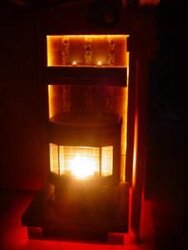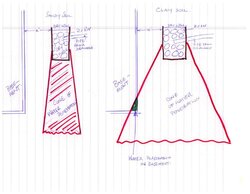My finished basement smells like mold, especially in the summer. The smell goes away in the winter and comes back strong by the end of summer. I bought the house 2 years ago and it came with the finished basement.
It doesn't look that good, as the sheet rock has some holes in the walls and they didn't use mold resistant sheet rock either.
I have been hunting for water leaks and fixing them when I can. However, I think it is a losing battle, and I am thinking I have to tear the whole thing down because it was not done right.
The foundation walls are poured concrete, plastic sheeting as vapor barrier, studs, fiber glass insulation and sheet rock.
I have talked to people who say that usually when there is a strong smell of mold there usually is a big mold colony somewhere, and if I could find it and deal with it it could be fixed. But I think with the bad sheet rock it will never work.
Plus if I tear down the walls I can apply some kind of concrete sealer to keep down the humidity.
Any other ideas, suggestions in dealing with a moldy finished basement?
Thanks.
It doesn't look that good, as the sheet rock has some holes in the walls and they didn't use mold resistant sheet rock either.
I have been hunting for water leaks and fixing them when I can. However, I think it is a losing battle, and I am thinking I have to tear the whole thing down because it was not done right.
The foundation walls are poured concrete, plastic sheeting as vapor barrier, studs, fiber glass insulation and sheet rock.
I have talked to people who say that usually when there is a strong smell of mold there usually is a big mold colony somewhere, and if I could find it and deal with it it could be fixed. But I think with the bad sheet rock it will never work.
Plus if I tear down the walls I can apply some kind of concrete sealer to keep down the humidity.
Any other ideas, suggestions in dealing with a moldy finished basement?
Thanks.




